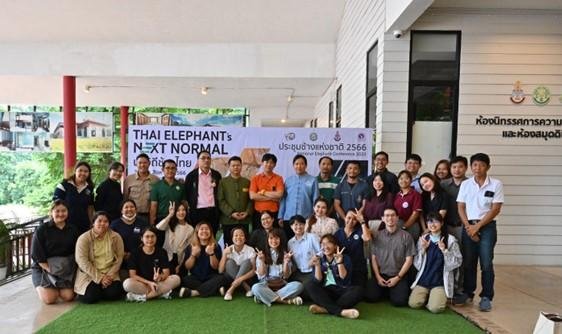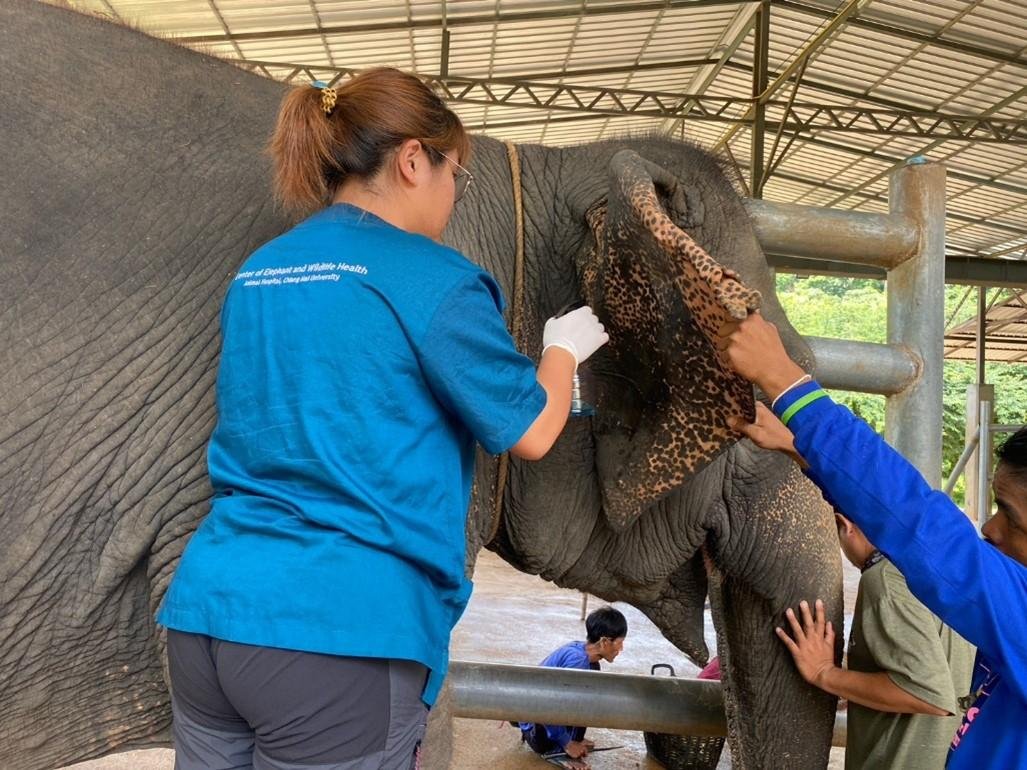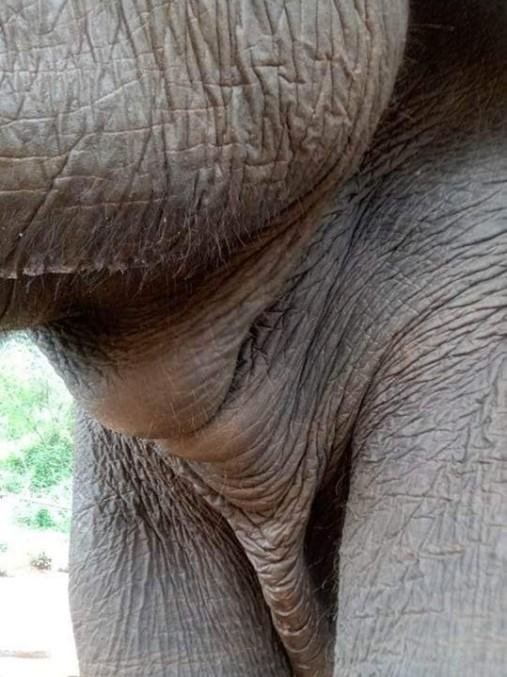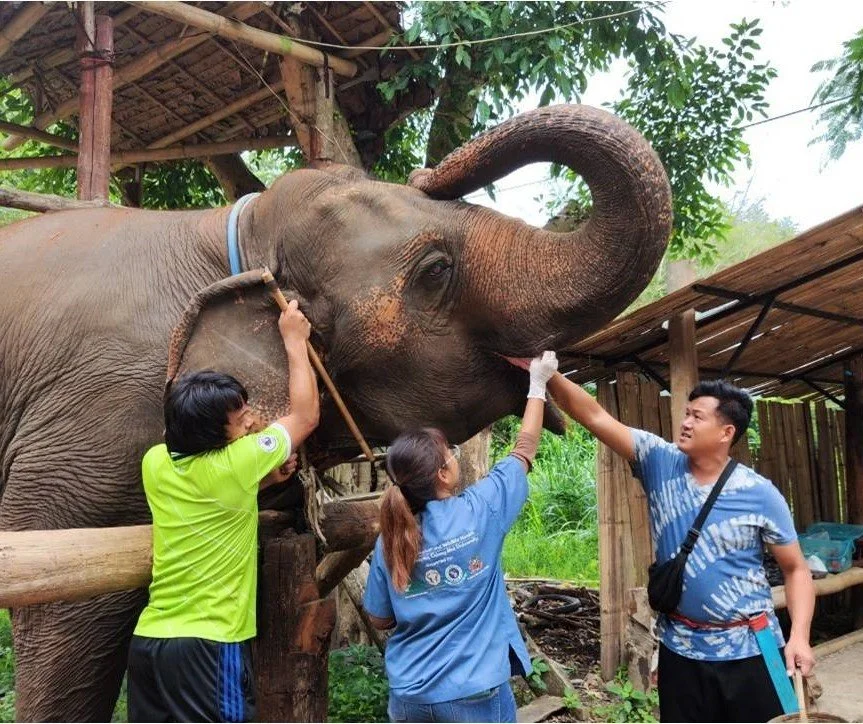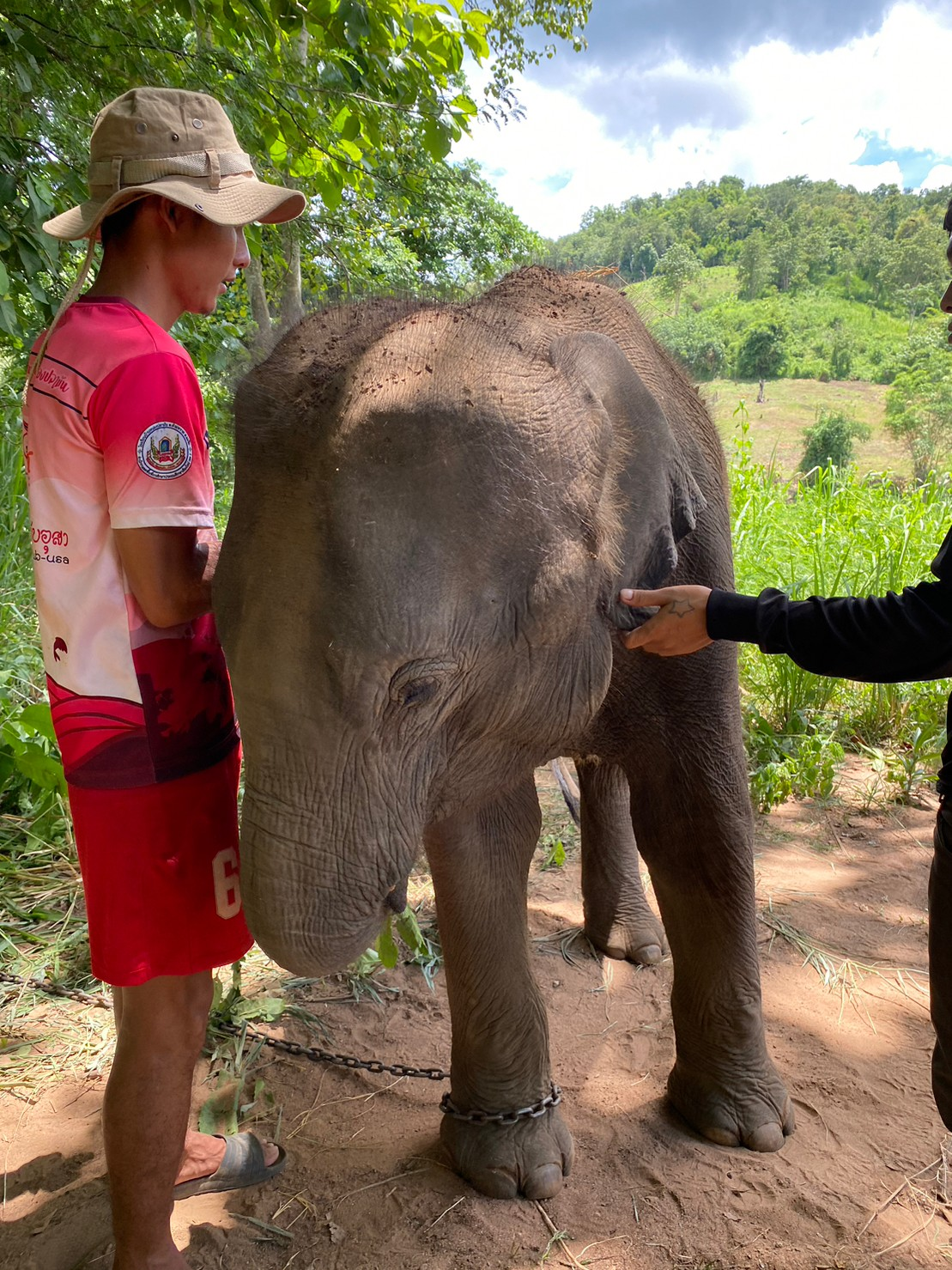CMU Vet Staff at the National Elephant Conference
The Chiang Mai University mobile veterinary unit had a busy month in August! The vet team was able to attend the 2023 National Elephant Conference in Lampang. Elephant nutrition, the EEHV situation in Thailand, how to care for orphaned baby elephants, and blood donation in elephants were among the topics covered in lectures and informational sessions for elephant health by veterinarians.
The Center recently depleted their blood plasma collection due to recent cases of EEHV. Blood plasma is very beneficial to have on hand for elephants who have low blood protein (hypoproteinemia), low blood albumin (hypoalbuminemia), ascites, loss of protein from any other issues, and blood loss (like in the case of EEHV). So, the search was on for an elephant donor! Thankfully, the Baan Chang Elephant Park
gave permission to collect the blood from an elephant donor named ParnWaad. This elephant reached all the criteria for an ideal blood donor. The team was able to collect 12 bags of blood that was then separated into plasma. Unfortunately, that afternoon they received a call for use of these plasma bags on a current patient with liver problems, severe low blood protein, and low albumin.
ParnWaad the elephant, donating blood
The CMU team received a call about a two month-old calf who fell down a hill and refused to take her medicine! They had to improvise to combine topical painkillers, walking restrictions, and laser therapy to minimize the inflammation. The calf was difficult to treat with laser therapy since she couldn’t stay still for very long. The calf’s symptoms were substantially better and almost back to normal after 1 week of
treatments.
The two month old calf
Later in the month, they received a call from an owner to see an elephant that presented chin and ventral edema. The vet performed a physical examination and mild ventral chin swelling was found. But, the ventral abdominal swelling was not obviously seen. They collected blood to check and to rule out the problem of hypoproteinemia (low levels of blood protein). The blood result was in normal range. The mahout was instructed to make a hot herbal pressure for the area. She was getting better and then recovered in a week!
Chin Edema
In total, the CMU Mobile Veterinary Unit received about 11 cases in the month of August spanning from musculoskeletal issues to wound care.
YOU can help support the CMU Mobile Veterinary Clinic to continue supporting elephants in need of medical care by donating to Asian Elephant Support at:
www.asianelephantsupport.org/donate or via Venmo @asianelephantsupport.

